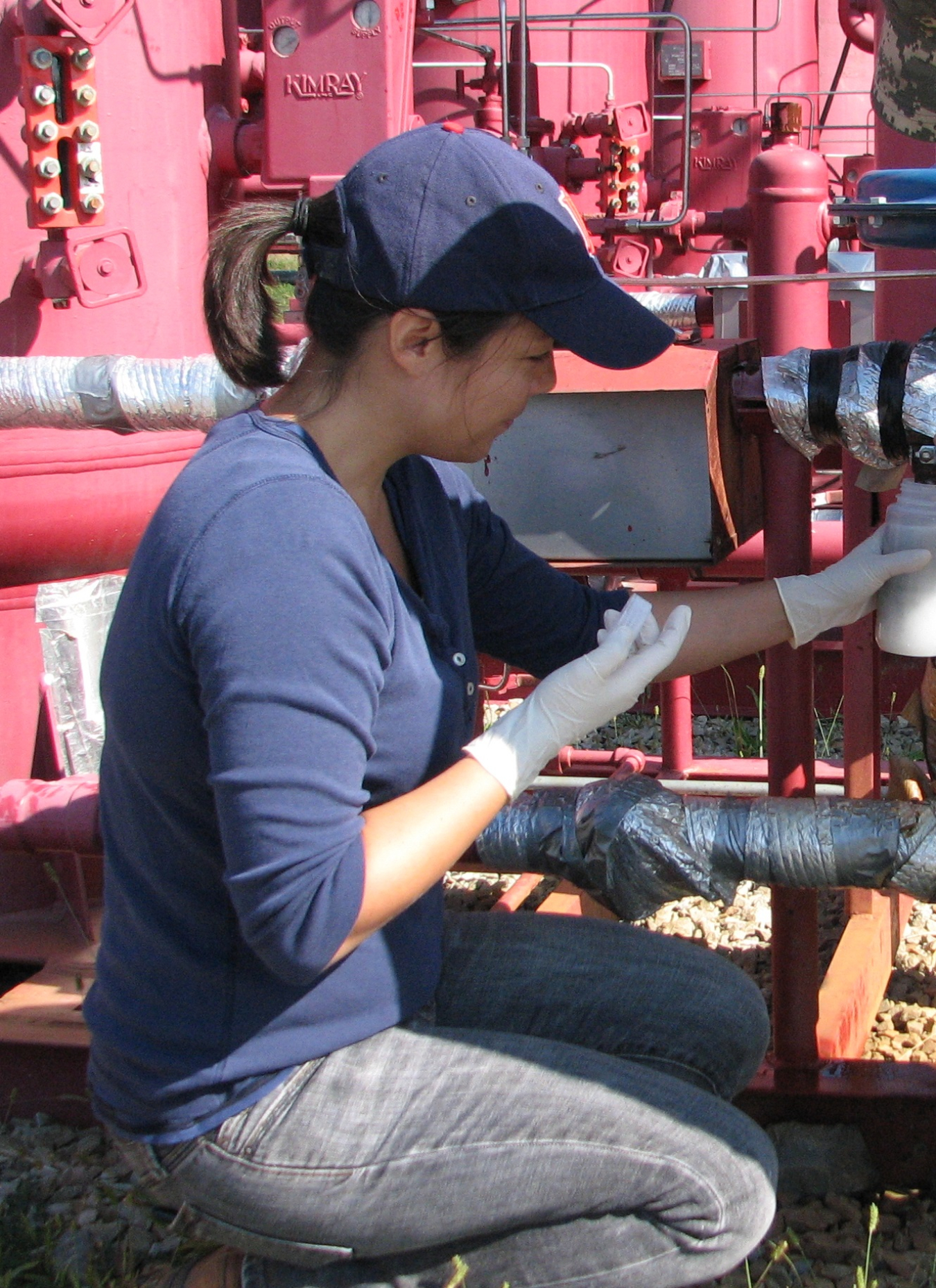Learn why Djuna Gulliver loves her job as a environmental engineer at the National Energy Technology Laboratory.
May 10, 2019
Djuna Gulliver has a Ph. D in Environmental Engineering from Carnegie Mellon University, a Master’s Degree in Environmental Engineering from Johns Hopkins University, and a Bachelor’s Degree in Chemical Engineering, Geology, and Geophysics from University of Minnesota. Her expertise is in geomicrobiology in energy and energy-impacted environments. She is currently works at the National Energy Technology Laboratory analyzing the microbial communities in various systems, such as carbon storage reservoirs, shale gas reservoirs, acid mine drainage, and coalbed methane reservoirs. She is also developing biological technologies to upgrade unused resources (such as CO2, syngas, or unminable coal) into value-added products.
What inspired you to work in STEM?
I was always interested in math. I found something satisfying about solving a math problem, similar to how some people enjoy crossword puzzles (which I also enjoy). And to be able to use math, combine it with chemistry and biology, and then apply it all to understand things occurring in nature was fascinating. So I started studying Environmental Engineering.
What excites you about your work at the Energy Department?
I really am interested in discovering chemical reactions driven by microbiology. Microorganisms are capable of doing amazing things, and can survive in environments that most people still think are void of life. Working for the Energy Department has allowed my to collect hard-to-obtain samples from fluids thousands of feet below the surface. As my fellow researchers and I characterize the microbiology of these samples, we get a glimpse of a complex ecology in a previously unknown environment. I still get excited when we finish our analyses, to get that first look at life from our underground samples.
How can our country engage more women, girls, and other underrepresented groups in STEM?
One of the most important things to Millennials is work-life balance. I recently had my first child, and I am realizing that it’s extremely important for this country to develop reasonable family leave policies. A family leave policy could go beyond reducing the stress of future working mothers/fathers – it could change the American culture to one where it is acceptable to be a devoted parent and still be a career person. Perhaps the workplace would also get more efficient, since we would all waste less energy feeling guilty and overworked. I worry that some younger, talented women cannot imagine wearing a scientist hat and a mother hat. This is especially true of STEM careers that require advanced degrees in which child-bearing years would occur during graduate school, which often have no family leave available.
Do you have tips you'd recommend for someone looking to enter your field of work?
One of the best things about STEM disciplines is that there is always a field that utilizes several seemingly unconnected interests. For example, I never would have thought electrical engineering and microbiology would merge, but then I found out about microbial fuel cells and microbial electro-synthesis. When I was in undergrad, I couldn’t decide if I wanted to learn about chemical engineering or geology, so I majored in both. People thought I was crazy, and that I would never find a career that required both disciplines. But fast forward to ten years, and having a background in both of my interests was perfect for a career in the Energy Department. A career in STEM can be fluid in application.
When you have free time, what are your hobbies?
I teach and perform for the Iron City Circus Arts. We do lyra, aerial silks, static trapeze, and straps.
Learn more about our programs & resources for women and girls in STEM at http://www.energy.gov/women

